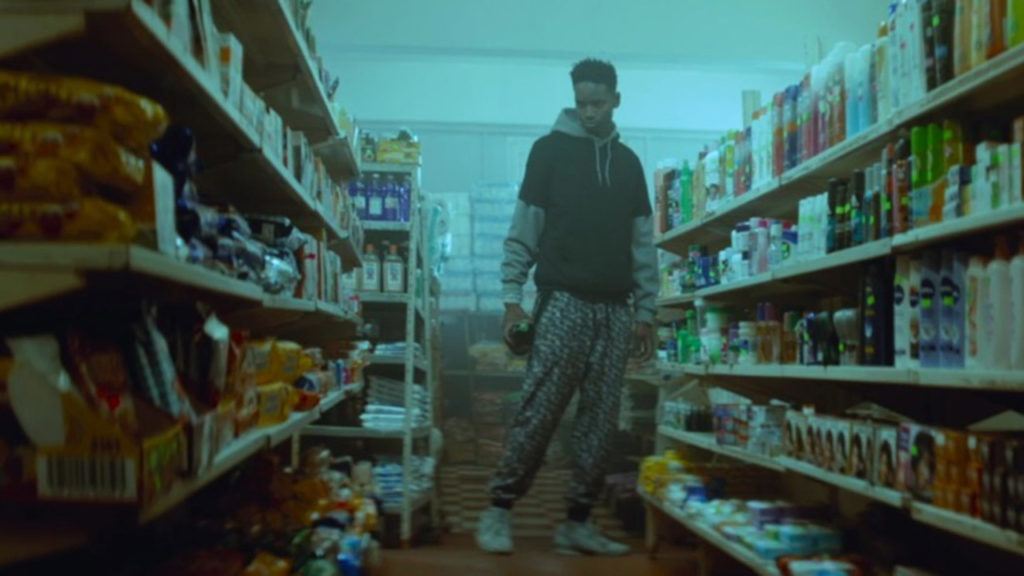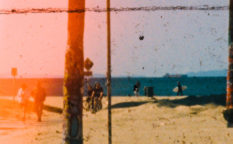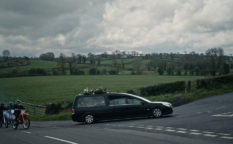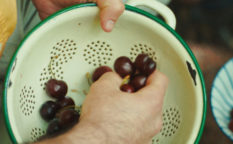Film Review: Sadla (2019), by Zamo Mkhwanazi
That the oppressed can be oppressors in specific life situations is a reality illustrated in Zamo Mkhwanazi’s short film Sadla that was screened in the World Narrative Shorts Competition at the Sundance Film Festival. Sadla entered the history by being the first ever narrative film by a black South African selected for this festival.

Zamo Mkhwanazi gained international attention in 2015 with her second short film The Call starring Fana Mokoena (Hotel Rwanda, Mandela. Long Walk to Freedom and World War Z, among others), that premiered at the prestigious Clermont Ferrand Film Festival, and that later on was screened at the 40th edition of Toronto International Film Festival from where it continued a successful festival circuit. A year later, the short „Gallo Rojo” that she co-directed with Alejandro Fadel, was selected for the Director’s Fortnight in Cannes.
The South African director pens scripts for her films that vivisect different aspects of life in Johannesburg. Each of her four shorts show that stories are much better told if they are not constructed in a simplistic manner and presented as ultimate truths through classical good guys-bad guys roles. In her debut Philia (2011) she took the struggle for basic rights and accomplishment of dreams on another level by telling a complex story of a young girl Philia (Lindiwe Matshikiza) whose full scholarship for the art academy in France gets withdrawn because she’s allegedly married to a person she doesn’t even know. When she finally traces down the man, he turns out to be everything but the evil culprit. Both of them have a different grudge to bear, and the only compromise is the acknowledgement that the solution lies in another illegal deal.
Just like in Philia, the plot of Sadla is magnificent in its complexity. As we follow a young man Nathi (Kuthula Magubane) facing the incidents with police on his every step to a supermarket to get a bottle of soft drink, we feel enraged by the scenes of constant threat by the authorities. A young boy gets ransacked on the street, a supermarket guard stands in Nathi’s way holding a baton suspecting him of theft, and he gets followed by a police car on his way back to his thirsty friends. We get shaken out from that feeling of solidarity with the youngster the moment a shy girl tries to pass by the gang of friends. The ugly face of sexual harassment is shown in its full force.
Sadla is partially inspired by the tragic events caused by police brutality in the post-Apartheid South Africa such as the Marikana Massacre (2012) when the police shot down 112 and killed 34 platinum miners who were asking for the same wage as the white workers. On the other hand, it is a story of the abuse of power, analysed from multiple angles.
The hand-held camera accelerates or slows down the tension, and the use of low-angle- and medium shots shows the shift of power addressed in the narrative. Mkhwanazi is interested in exploring the complicated mechanisms of human behavior, motivated by simple instincts.
Sadla had its world premiere at TIFF last year.
Original
title: Sadla
Country: Canada
Language: Zulu
Runtime: 6 min
Written/ directed by: Zamo Mkhwanazi
Producer: Zamo Mkhwanazi
Cinematographer: Chuanne Blofield
Editing: Brett Anolik, Ashutosh Warang & Luc Andrie
Colourists: Jean-Luc Mello, Briony Sam Mcleod
Sound & final mix: Jean-Luc Mello
Sound recordist: Pule Moswane
Key grips: Emmanuel Tihakaye
Make up: Nikita Buna
Art Director: Jason Wiggin
Cast: Kuthula Magubane, Ursula Botha, Gilles Furtwagler, Tumi Montsho,
Justin Strydom, David Motahane, Wilson Shaddal, Sabelo Dyantyl, Sipho Nxumalo, Vell
Mika Dube, Tshepo More, Lullbo Kashe-Katiya, Abena Aylvor
















